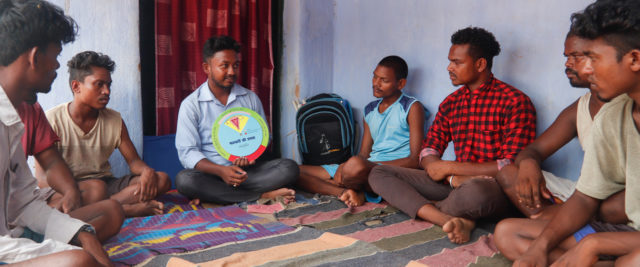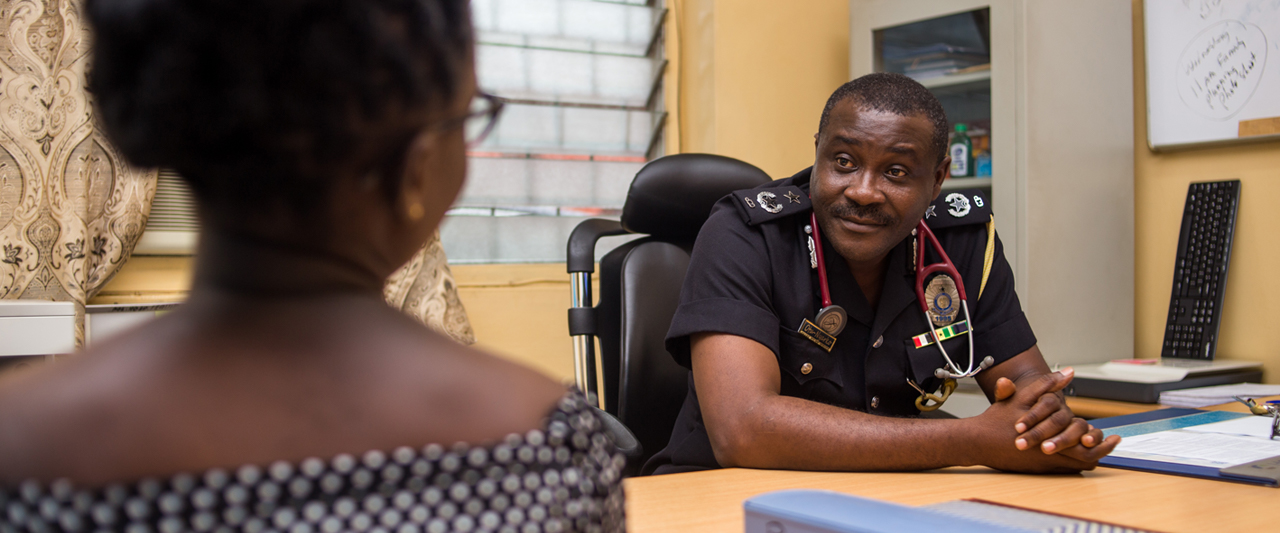As the head of the Ghana Police Public Health Department, Dr. Samuel Otu-Nyarko knows the consequences of unsafe abortion. “Every year,” he says, “you look at the statistics from the Ghana Health Service and you see a high proportion of women who are dying because of unsafe abortion.”
Women and girls in Ghana have broad legal access to abortion, but they face barriers when trying to access safe, legal services. As a result, unsafe abortion persists as one of the country’s leading causes of maternal death. To help combat this, the Ghana Police Hospital—where Otu-Nyarko works, counseling women on their reproductive health options—offers safe abortion services on-site, in a designated room.
This has helped providers feel supported to do their jobs. Some will go to the police and share, “‘Look, we are here, we are certified, and we are providing legal services.” The police force, he says, “must make sure that the law is obeyed; we must protect those who are providing the service legally.”
Otu-Nyarko believes that men have an important role to play in supporting women’s access to safe abortion care. “In Ghana, men wield a lot of power over women,” he says. “If men get on board and understand the issue, it’s easier for women to discuss issues with their partners. When that happens, husbands will know the issues involved and they can encourage women” to make informed reproductive health decisions for themselves.
The Ghana Police Public Health Department’s work to support safe, legal abortion is “making a big impact.” Otu-Nyarko says: “The benefits are immense. We have saved countless women.” For women who need an abortion, he says, “the system is for you, so that you don’t lose your life in the process.”
 Men can play a crucial role—as partners, family members, community leaders and professionals—in expanding women’s access to safe abortion. We’re supporting this in Ghana, India and Bolivia
Men can play a crucial role—as partners, family members, community leaders and professionals—in expanding women’s access to safe abortion. We’re supporting this in Ghana, India and Bolivia
For more information, contact [email protected].


